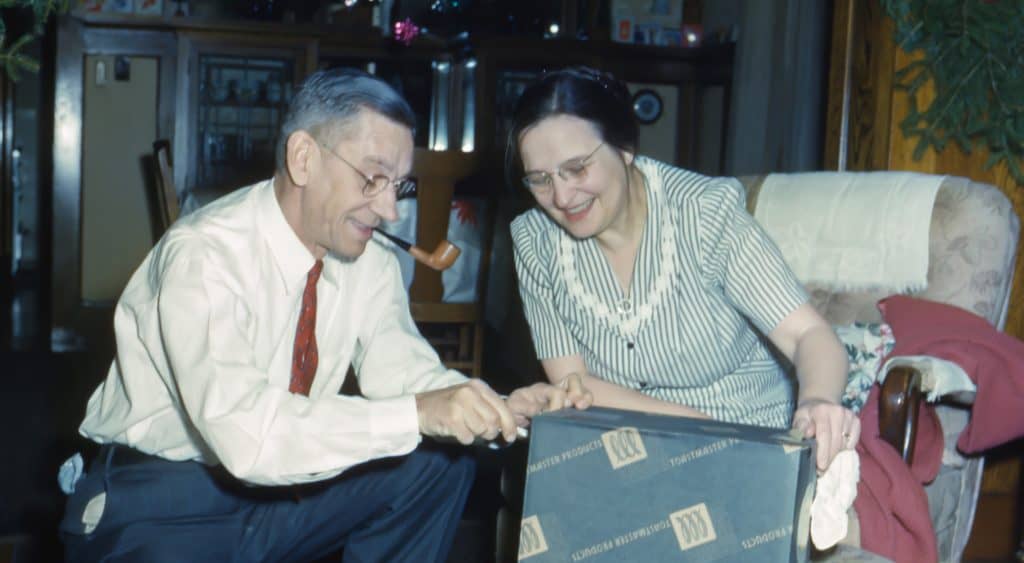
14 Jun Secrets of a Long Marriage
Since Adam and Eve, people have been marrying and learning to live with another person in the most wonderful and the most awful circumstances. The first couple was married at least 130 years and probably closer to eight or nine hundred. How did they do that? (I know, it probably helped that they weren’t given choices!)
Using my own experience (38 years) and that of others, I’ve come up with a list of habits (you may be able to come up with others) that will increase the probability of your having one of those long lived marriages. Consistently following these secrets will also increase the likelihood of living together in a reasonably happy manner.
You may notice the conspicuous absence of the word love. That is not an oversight. We tend to think of love in terms of feelings, and real love is more about what we do than how we feel. That said, in no particular order, here’s the list:
It’s not personal
It’s really important to know that the way your partner treats you is about them and how they’re feeling, NOT about you. I act the way I do because of who I am not what you do. Our own thoughts and feelings provoke and dictate our actions toward others.
Benefit of the doubt
I don’t know about you, but I always think I deserve the benefit of the doubt. Why? Because I have the benefit of knowing my intentions. Giving the benefit of the doubt is all about realizing that I can only see the actions of the other and being willing to assign the best motives to those actions. Think about it. When was the last time you set out to make your partner angry or to hurt his feelings? Assume the best!
Date night
This may be the most important thing on my list. It’s one of the few things I will nag my marital clients about. Having fun together helps you remember why you like each other, emphasizes your commitment to the relationship, and keeps the day to day problems in perspective.
Listen well
The Bible says to be quick to listen and slow to wrath, and God gave us two ears and one mouth. I think that’s a good reminder of the importance of listening over speaking. The more I listen, the more I understand.
Understanding
Research shows that the majority of difficulties we have between us and our partners can be solved if we feel heard and understood. We frequently spend our time trying to make others understand us. That approach keeps us in a win-lose situation. If we each make the goal of our conversations (positive or negative) the understanding of our partner, we both walk away feeling understood. Seeking to understand each other makes a win-win scenario much more likely. The more I understand, the more willingness I have to work with my partner and the easier it is to solve problems. Remember that understanding does not necessarily mean agreement!
Sense of humor
Laughter truly is good medicine, and a sense of humor is an asset in most situations. It keeps us from taking ourselves too seriously which keeps us open to each other and open to looking outside the box for solutions.
Patience and forbearance
In the old King James English, this was called “long-suffering”. I think that sums up one aspect of patience quite clearly. To be long-suffering, you must suffer long! Add to that the ability to wait upon your partner to get to the place you are (whether that is a physical or an emotional place), and you get the idea. Not only does this include a certain generosity toward your partner, it can often keep you from doing something regrettable in the heat of a moment.
Commitment
My dictionary defines commitment as the “the act of binding yourself (intellectually or emotionally) to a course of action.” Persistently and consistently acting as if your marriage is more important than either individual is at the heart of long healthy marriages. You have to be determined to stay married.
Kindness
Andrè Gide once said, “True kindness presupposes the faculty of imagining as one’s own the suffering and joys of others.” True kindness will cause us to put aside our own activity to make the other’s life better in some way. It usually comes in a lot of small behaviors–anything that enhances the life of our partner.
Forgiveness
1 Corinthians 13:5 says that love is not rude, self-seeking, or easily angered and that it doesn’t keep a record of wrongs. Forgiveness is the ability to pardon an offense along with the anger or resentment that comes with it. It is not a denial of the offense or the consequences of the offense, but the decision to let it go. I often advise clients to keep a record of rights, instead of a record of wrongs. It helps.
Anger management
Paul’s letter to the Ephesians teaches us that we can be angry and not sin. He reminds us not to let the sun go down on our wrath, and goes on to advise us not to give the devil a foothold (Eph. 4:26-27).
I’ve found it is not good to let our wounds fester. Most of the time, it’s better to endure the pain in the moment and resolve the issue at hand. My anger isn’t the problem, it’s what I choose to do that causes the problem. If I don’t take things personally and maintain an attitude of patience and kindness, I can better give my partner the benefit of the doubt. Then, I’m ready to listen and understand, setting myself up for a good night’s sleep and a happier tomorrow.
There’s nothing magical about any of these things. Anyone can cultivate these habits and be successful, but it does require thought and effort. Although simple, they’re not easy!


No Comments